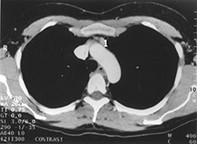Peer Reviewed
Feature Article Pregnancy
Endocrine disorders in pregnancy
Abstract
Advances in the treatment of endocrine diseases have enabled many women to become pregnant who previously would have been unable to do so. This article discusses a range of nondiabetic and nonthyroid problems that GPs may encounter in pregnant patients.
Key Points
- Drug therapies for pre-existing endocrine disorders should not be ceased when pregnancy is confirmed. Specialist review is recommended.
- During pregnancy, the recommended daily intake of calcium is raised from 800 to 1200 mg per day. Calcium supplementation is not routinely recommended during lactation, but could be considered for women who are nursing more than one infant or have had closely spaced pregnancies, and for lactating adolescents.
- Women with mild asymptomatic primary hyperparathyroidism may be monitored without treatment throughout pregnancy with a good outcome. However, surgical parathyroidectomy is recommended for more severe disease, preferably in the second trimester.
- Patients with prolactinomas and other pituitary tumours should be reviewed regularly throughout pregnancy and questioned about symptoms of tumour enlargement and pituitary dysfunction.
- Patients taking corticosteroids during pregnancy for Addison’s disease or for other reasons will need to increase their dosage at times of stress.
- Breastfeeding is generally not contraindicated in women with endocrine disorders.
Purchase the PDF version of this article
Already a subscriber? Login here.

